- Home
- Неизвестный
Granta 122: Betrayal (Granta: The Magazine of New Writing) Page 2
Granta 122: Betrayal (Granta: The Magazine of New Writing) Read online
Page 2
As it turned out, the Dunkin’ Donuts was a fake. It only sold toasted cheese sandwiches. I bought one, watched all the while by three men with moustaches, smoking cigarettes – clearly Mukhābarāt, the infamous Secret Police.
In Damascus, people whisper when out in public. When a waiter arrives at a table, people stop talking. The Mukhābarāt are often so obvious that they could have come straight from central casting. They could easily have been the same men who followed me in Iraq a decade before – the same cheap leather jackets, the same badly trimmed, downward-turned moustaches.
I had come to Syria because I wanted to see the country before it tumbled down the rabbit hole of war. That first trip in June 2012, Syria was on the brink. I checked into a hotel where the United Nations military observers who were there to monitor Kofi Annan’s six-point plan in an attempt to bring peace – glum-faced men who were no longer allowed to operate because they had been shot at too often – sat drinking coffee after coffee and making jokes about the Russian hooker bar downstairs.
One Thursday – the start of the Muslim weekend – I came in after an exhausting day of talking to people who were uncertain whether or not their country would exist in a year or two. They were Christians, but liberal. They did not support the government’s crushing of peaceful protests at the beginning of the uprising; on the other hand, they were terrified of what was coming next.
‘Jihadists?’ they asked. ‘Salifists?’ This is what everyone was worried about, what everyone claimed to distrust: ‘Who’s next?’ Syria, like Bosnia, is multi-ethnic: home to generations of Greek Orthodox, Christians, Sunni Kurds, Shias, Alawites and even a residual population of Jews – ‘a melting pot’, as the foreign minister’s spokesperson, Jihad Makdissi, a Christian with an Islamic name, has called it. But for how much longer was that melting pot going to hold?
To get the weekend going, the hotel sponsored a pool party that looked to me, with the smoke rising in the background from shelling in the southern suburbs, like a re-enactment of Sodom and Gomorrah.
A half-dressed Russian woman danced onstage by the pool, gyrating her skinny hips. Voluptuous wealthy Syrian ladies – all teased hair, glossy lips and silicone-enhanced bosoms – strutted in bikinis and high heels. Men also wore the briefest of swimming trunks and drank what the Levants call ‘Mexican beer’ – Lebanese beer served with a slice of lime in a salt-rimmed glass.
The party was obscene in a city that was verging on civil war. I stood on my balcony and watched this denial of the drum roll of impending carnage. These people’s lives were falling apart. But the balloon had not yet burst.
4. The Believers
For two weeks running, I witnessed the fevered hedonism of the Thursday-afternoon pool parties at the Dama Rose Hotel. The first week was like every other. The hairdresser’s were full of ladies of leisure getting hair extensions, mani/pedis and false eyelashes. The roads were clogged with luxury cars heading outside the city to amusement parks – the ones that were still open – en route to country villas for parties, weekend picnics or dinners. Restaurants such as Naranj, which takes up nearly half a block in the Old City and serves traditional Arabic food to the elite, were packed.
But what was unusual about the Dama Rose pool parties was that they were taking place in a hotel that was, ironically, also home to those 300 frustrated United Nations soldiers from fifty different countries who had been brought in to monitor the situation.
From 14 June onwards, when their operations were suspended because it became too dangerous for them to work – their convoys had been attacked, shot at and harassed – the men sat around in the hotel lobby, looking bored, just like the Mukhābarāt.
The blasting house music wafted up to the third floor where Major General Robert Mood, who was then head of the UN Supervision Mission in Syria, tried to negotiate ceasefires, and where his civilian staff shut the windows, put their heads in their hands and wondered what the hell was going to happen to their mission. It would be suspended a few weeks later and Syria would be added to the long list of United Nations failures.
That first week, people danced around to a pumped-up version of Adele’s ‘Someone Like You’, but by the second week, there was an air of sombre reflection to the party. People drank, the house music blared, the UN staff complained about the noise, but the Russian dancer was gone. And this week, people left early, rushing to their 4x4s with distinctly worried looks on their faces.
In the distance, beyond the pool, towards the al-Marjeh neighbourhood, just across from the Justice Courts, there was a larger curl of smoke: two car bombs had exploded earlier that day in the centre of Damascus.
I had left town that morning to visit a remote convent where pro-government – meaning those who support the regime of President Bashar al-Assad – nuns made apricot jam and spent their days praying to the relics of Takla, an ancient Christian saint.
Takla had been an early convert of St Paul, who was running from the Romans when she found herself facing an enormous mountain. Miraculously, the mountain opened to let her pass and make her escape. Syrians and others from all over the Middle East came to be healed at the place of that miracle.
Like many people who support Assad, the Greek Orthodox nuns feared a fundamentalist Islamic regime in their country. I sat with one sister who wore an old-fashioned wimple and served me sugared coffee and biscuits. She spoke Aramaic, the ancient language of Christ, and vehemently defended the regime.
The nuns would not believe that Syrians could massacre each other, she said. When I pointed out that earlier in the summer the United Nations had released a report pointing a finger at the Assad regime for the massacre of civilians at al-Houla, she ignored me, asking a younger nun to bring in a plate of sugared apricots.
This was the same week that the offices of a pro-government television station had been bombed and a firefight had broken out between opposition and pro-government forces. And yet, in Maaloula where the convent was situated, in this village that lay on the road between Damascus and Homs, I felt an unexpected sense of peace.
I remember thinking this would be a good place to hide if full-scale war broke out, and I slipped away from the nuns to explore the convent. Downstairs, the nuns slept in monastic cells, which looked out over the mountains where St Takla had fled. In the courtyard, I saw Syrian couples who had come here to pray for fertility or for the healing of various ailments: you went into a candlelit cave and held a wooden foot, or stomach, or arm, or whatever part of the body ailed you, and prayed to St Takla.
The sun bore down on the car on the road back, and in contrast to the cool convent with its sense of hushed protection, the Damascus bomb site stank of burned rubber. Skeletons of charred cars remained. It was a miracle that no one had been hurt by these explosions caused by ‘sticky bombs’ – handmade bombs taped to the bottom of a car at the height of rush hour, just across from the Justice Courts.
‘Real amateur hour,’ one UN official said to me later. ‘The bombers didn’t know what they were doing – it’s just a scare tactic to make the people hate the opposition.’
And it worked. People blamed the opposition and ‘foreign interventionists’ for the explosions. Crowds of people gathered, angry that their city was quickly falling victim to the devastation that was spreading across the country.
‘Our only friend is Russia!’ one well-dressed man shouted, his face contorted with rage. ‘These are foreigners that are exploding our country! Syria is for Syrians!’
It is a common belief that the bombs and the chaos spreading throughout the country are being caused by a ‘third element’. Especially in Damascus, which has long been an Assad stronghold, people refuse to believe that the opposition will rule their country without turning it into a fundamentalist Muslim state.
Damascus has many faces. There are the opposition activists who are working night and day to bring down Assad, the ones who meet me in secret. Sometimes, when I return to my home in Paris, I hear news through the grapevine tha
t they have disappeared. These are the ones who risk going to jail for up to forty-five days without charge. Even peaceful protesters have been thrown in jail simply for demonstrating. Their families are not told of their whereabouts.
Twice I visited the Damascus Opera House – the second-grandest in the Middle East, in this city named by UNESCO in 2008 as the Arab Capital of Culture.
‘I do not want to give the impression that we are like the Titanic – the orchestra plays on while the ship sinks,’ explained one classical musician. We were sitting in her office and she motioned overhead, meaning the room was probably bugged.
On another visit, I went to see the Children’s Orchestra practising, led by a visiting British conductor. When I mentioned that he was brave to be there, he said, with a worried look, ‘Should I get out soon? How long do you give it before all-out war?’
I reassured him, but in fact, I thought, the country was already in a full-scale, if guerrilla, war.
Some of the musicians were very young – around eight – with tiny hands holding their instruments, but others looked like teenage kids anywhere – Brazilian surfing bracelets, baggy jeans, long flowing hair. They practised the incredibly touching song of innocence, ‘Evening Prayer’, from Humperdinck’s Hansel and Gretel.
I sat for a good while watching the fresh young faces of the children intently reading the musical scores and holding their instruments with care, and wondered what this room would look like if I returned at exactly this time next year. How many of these boys would be sent to mandatory military service? How many would flee the country? I tried not to think about whether any would no longer be living.
Maria Saadeh (Arabic for ‘happiness’) lives in Star Square in the old French mandate section of Damascus, in a 1920s building that she helped renovate. A restoration architect by training (educated in Syria and France), she was recently elected, without any experience, as the only Christian independent female parliamentarian.
The Christians are frightened. On Sundays during my stay, I go to their churches – Eastern Christian or Orthodox – and watch them kneel and pray, smell the intense wax of the candles and see the fear on their faces. Will we be wiped out?
The Christian minority fears that if a new government – and perhaps a Muslim fundamentalist one – takes over, they will be cleared off the face of Syria, off the face of the Middle East, the way the Armenians were driven out of Turkey and massacred in 1914.
‘Christians to Beirut, Alawites to the coffin,’ is one of the chants of the more radical opposition members.
Maria seems confident for the moment. She sits on her roof terrace in a chic apartment building, her two adorable children, Perla and Roland, peeking their heads through the windows and a Filipina maid serving tea. It could be an ordinary day in peacetime – except that, earlier that day, in another Damascus neighbourhood, there was a car bomb and no one yet knows the number of people killed.
Earlier in the week, I had gone to a private Saturday-night piano and violin concert where the director-general of the Opera House, an elegant woman of mixed European and Syrian background, performed Bach, Gluck and Beethoven.
The concert was held at the Art House, an elegant boutique hotel built on the site of an old mill that has water streaming over glass panels on parts of the floor. The audience was sophisticated. There were women in spiky heels and strapless black evening gowns mingling with artistic-looking bohemian men in sandals and casual chinos, and their children.
Everyone rose at the beginning of the concert to pay homage to the ‘war dead’ with a minute of silence. The violinist wore a strapless red silk dress and high heels, and received a standing ovation. Afterwards, the audience filed out to an open-air restaurant where champagne was served. I overheard several people talking in hushed voices about what had happened around the city that day: explosions, fighting near the suburbs.
‘A symphony,’ one man said, toasting hopefully with his glass of champagne, ‘that we will live through for the next few years.’
5. Firis
One steaming Saturday morning, I drove to the neighbourhood of Berzah, which is a toehold of the opposition inside Damascus. There are frequent protests here, and the government soldiers crack down with arrests, shootings, injuries and deaths. Berzah is known as one of the ‘hot spots’: areas around Damascus where it is evident that the war is now creeping closer. Douma, where dozens of people were killed in one day in July, is another hot spot. These days the hot spots are engulfing Damascus.
Berzah is also the site of the government-run Tishreen military hospital. One morning, I go to a funeral for fifty soldiers, all killed fighting for Assad. I watch silently as men load the mangled bodies – disfigured and broken by car bombs, IEDs, bullets and shrapnel – into simple wooden coffins, which are then secured with nails before being draped with Syrian flags. The men then march with the coffins, in full military style, to the sound of a marching band, into a courtyard, where families and members of their regiment wait, many of them weeping. It is an acute reminder of how hard Assad’s forces are getting hit by the opposition, who are resorting more and more to guerrilla tactics. A senior official at the hospital, who refuses to give his name, says that 105 soldiers are dying every week.
Upstairs, on the seventh floor of the hospital, a thirty-year-old major lies under a sheet, his right leg and arm missing. At the end of May, Firis Jabr was in a battle in Homs where he says he was ambushed and gravely injured by ‘foreign fighters: Libyans, Lebanese, Yemeni’.
Despite the fact that he is now missing nearly half his body, and his anxious fiancée is standing attentively near his bed, Firis, who is Alawite – an offshoot of the Shia religion to which the Assad clan and many of his followers belong – has a huge smile on his face. He introduces me to his mother, whom he calls ‘Mama’ when I ask her name, and she makes us coffee from a small hotplate in the corner of the room. She serves Arabic pastries with pistachios. She tells me that she is a widow and Firis is her eldest son.
Like nearly all the government supporters I meet, Firis says that he believes in Assad and will continue to fight, as soon as he is fitted with his prosthetics.
‘I have two loves,’ he tells me, trying to lift himself up with his useless side, ‘my fiancée and Syria.’
Later I meet a Syrian friend for tea. She shakes her head sadly when I tell her about Firis.
‘It has started,’ she whispers sadly. ‘The beginning of the end of what was Syria.’
6. Among the Alawites
On my second trip to Syria, a little more than a month later, I felt I was in a different country. The evolving war had become a real war. The faux light-heartedness that had existed – like a balloon – had been popped. Four men in Assad’s closest circle had been assassinated, probably with the help of FSA members who had infiltrated the government. People were expecting the fall of Damascus, or worse. There was heavy fighting in other parts of Syria – in Idlib, Aleppo and in the suburbs of Damascus.
I was told by a local reporter that 2,000 people had fled the capital alone. Refugees were flooding the Turkish, Jordanian and Lebanese borders. There were fears for the winter.
The Dama Rose Hotel pool parties had halted. The UN had been pulled out except for a skeleton staff; one night I watched a strange karaoke evening – an attempt to be jolly in a miserable place – in the bar. I sat smoking a narghile – a water pipe – and listened to shelling coming from inside Damascus.
I went back to Homs to see some of my Syrian friend Maryam’s relatives, and had lunch with her family. Everyone ate quietly while we heard the shelling emanating from a nearby government base. Then, while the older ladies rested on sofas for their after-meal repose, I spoke quietly to the men, asking if they were frightened.
Many people had left, they told me, or were leaving, and they pointed in the direction of the sound of the shelling: ‘This is the background music of our lives.’
The next day, we drove towards Latakia, in the Alawite heartl
and, to see the mausoleum of Hafez al-Assad, the father of Bashar, who had been president from 1971 until his death in 2000. I drove down with Maryam and her husband, passing through checkpoint after checkpoint, and as we got closer to Qardaha, where Assad is buried, there were stone lions everywhere – assad means ‘lion’ in Arabic and it’s the name Bashar’s grandfather had adopted.
Maryam, who wears a hijab, said, ‘We are in the land of Alawites now.’ She paused. ‘I feel uncomfortable.’
But at the Assad family mausoleum, the guards – young men in sombre blue suits – were friendly; shocked, even, to see a foreigner. They gave me tea and escorted me inside to the green-covered graves where Hafez and two of his sons are buried. They said Hafez had been the first Alawite to go to high school. The air was heavy with the scent of roses and incense. I looked at an empty corner and wondered if the current president, Bashar, was going to find his place there, sooner rather than later.
‘We may never see this again,’ Maryam’s husband said as we left, passing another lion. ‘If the regime crumbles, the opposition will tear this place down to the ground.’
When we left, we climbed higher into the green Jibal al-Alawiyin mountains and stopped to eat at a roadside restaurant. A river rushed below us. The waiter was blue-eyed – many Arabs in the Levant are, but in particular Alawites – and said he had moved to Latakia when he was a child. As an Alawite he constantly felt marginalized: even as part of the minority that controlled the country. Seventy-four per cent of the country are Sunni Muslims, yet the Alawites control most of the government jobs and postings.
‘The Europeans don’t understand us,’ the waiter said as he brought platters of barbecued chicken and bottles of beer. ‘As Syrians, we are all losing so much.’
At another table, two Alawite businessmen offered us rakija, a form of brandy made with anise, and came to join our table. We spoke openly of politics, but when I mentioned the regime’s reputation for torture and detention, there was visible stiffening.

 The Bolivian Diary
The Bolivian Diary Caffeine Blues_ Wake Up to the Hidden Dangers of America's #1 Drug ( PDFDrive )
Caffeine Blues_ Wake Up to the Hidden Dangers of America's #1 Drug ( PDFDrive ) The Empty House
The Empty House T Thorn Coyle Evolutionary Witchcraft (pdf)
T Thorn Coyle Evolutionary Witchcraft (pdf)![K J Emrick & Kathryn De Winter - [Moonlight Bay Psychic Mystery 01-06] - A Friend in; on the Rocks; Feature Presentation; Manor of; by Chocolate Cake; A-Maze-Ing Death (retail) (epub) Read online](http://freenovelread.comhttps://picture.efrem.net/img/nienyi/k_j_emrick_and_kathryn_de_winter_-_moonlight_bay_psychic_of_by_chocolate_cake_a-maze-ing_death_retail_epub_preview.jpg) K J Emrick & Kathryn De Winter - [Moonlight Bay Psychic Mystery 01-06] - A Friend in; on the Rocks; Feature Presentation; Manor of; by Chocolate Cake; A-Maze-Ing Death (retail) (epub)
K J Emrick & Kathryn De Winter - [Moonlight Bay Psychic Mystery 01-06] - A Friend in; on the Rocks; Feature Presentation; Manor of; by Chocolate Cake; A-Maze-Ing Death (retail) (epub) Next Day of the Condor
Next Day of the Condor Onyx
Onyx The Woodcock Game: An Italian Mystery Novel
The Woodcock Game: An Italian Mystery Novel Granta 122: Betrayal (Granta: The Magazine of New Writing)
Granta 122: Betrayal (Granta: The Magazine of New Writing) One More Dream
One More Dream Cosa Nostra by Emma Nichols) 16656409 (z-lib.org) (1)-compressed
Cosa Nostra by Emma Nichols) 16656409 (z-lib.org) (1)-compressed Cowboy by J. M. Snyder
Cowboy by J. M. Snyder Colossus
Colossus Star Trek - DS9 011 - Devil In The Sky
Star Trek - DS9 011 - Devil In The Sky Fright Mare-Women Write Horror
Fright Mare-Women Write Horror The Future Is Japanese
The Future Is Japanese In the Witching Hour
In the Witching Hour Mammoth Books presents Wang's Carpets
Mammoth Books presents Wang's Carpets The Cradle King: The Life of James VI and I, the First Monarch of a United Great Britain
The Cradle King: The Life of James VI and I, the First Monarch of a United Great Britain Stalking Moon
Stalking Moon Hostage To The Devil
Hostage To The Devil![Harris, Daisy - Mere Passion [Ocean Shifters 2] (Siren Publishing Classic) Read online](http://i1.bookreadfree.com/i/03/23/harris_daisy_-_mere_passion_ocean_shifters_2_siren_publishing_classic_preview.jpg) Harris, Daisy - Mere Passion [Ocean Shifters 2] (Siren Publishing Classic)
Harris, Daisy - Mere Passion [Ocean Shifters 2] (Siren Publishing Classic) Day, Sunny - Hot in Space (Siren Publishing Ménage and More)
Day, Sunny - Hot in Space (Siren Publishing Ménage and More) Five Books Of The Lives, Heroic Deeds And Sayings Of Gargantua And His Son Pantagruel
Five Books Of The Lives, Heroic Deeds And Sayings Of Gargantua And His Son Pantagruel I Never Thought I'd See You Again: A Novelists Inc. Anthology
I Never Thought I'd See You Again: A Novelists Inc. Anthology Billion dollar baby bargain.txt
Billion dollar baby bargain.txt![Chenery, Marisa - Turquoise Eye of Horus [Egyptian Shifters 1] (Siren Publishing Classic) Read online](http://i1.bookreadfree.com/i1/03/26/chenery_marisa_-_turquoise_eye_of_horus_egyptian_shifters_1_siren_publishing_classic_preview.jpg) Chenery, Marisa - Turquoise Eye of Horus [Egyptian Shifters 1] (Siren Publishing Classic)
Chenery, Marisa - Turquoise Eye of Horus [Egyptian Shifters 1] (Siren Publishing Classic) Cat Magic
Cat Magic Star Trek - DS9 - Warped
Star Trek - DS9 - Warped Catherine Coulter - FBI 1 The Cove
Catherine Coulter - FBI 1 The Cove Miranda Lee -The Blackmailed Bridegroom
Miranda Lee -The Blackmailed Bridegroom The Seashell Anthology of Great Poetry
The Seashell Anthology of Great Poetry Dragon Moon
Dragon Moon The Social Costs of Pornography: A Collection of Papers
The Social Costs of Pornography: A Collection of Papers That Is Not Dead
That Is Not Dead Best New Horror: Volume 25 (Mammoth Book of Best New Horror)
Best New Horror: Volume 25 (Mammoth Book of Best New Horror) This Christmas by J. M. Snyder
This Christmas by J. M. Snyder Faerie Cake Dead
Faerie Cake Dead CS-Dante's Twins
CS-Dante's Twins EFD1: Starship Goodwords (EFD Anthology Series from Carrick Publishing)
EFD1: Starship Goodwords (EFD Anthology Series from Carrick Publishing) Echo Burning by Lee Child
Echo Burning by Lee Child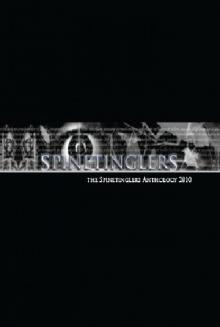 The Spinetinglers Anthology 2010
The Spinetinglers Anthology 2010 Wild Hearts
Wild Hearts Violet Winspear - Sinner ...
Violet Winspear - Sinner ... Broken Angels
Broken Angels FearNoEvil
FearNoEvil![Santiago, Lara - Range War Bride [Tasty Treats 11] (Siren Publishing PolyAmour) Read online](http://i1.bookreadfree.com/i1/03/30/santiago_lara_-_range_war_bride_tasty_treats_11_siren_publishing_polyamour_preview.jpg) Santiago, Lara - Range War Bride [Tasty Treats 11] (Siren Publishing PolyAmour)
Santiago, Lara - Range War Bride [Tasty Treats 11] (Siren Publishing PolyAmour) 8 Great Hebrew Short Novels
8 Great Hebrew Short Novels This Is How You Die: Stories of the Inscrutable, Infallible, Inescapable Machine of Death
This Is How You Die: Stories of the Inscrutable, Infallible, Inescapable Machine of Death The Steampowered Globe
The Steampowered Globe While We Wait by J. M. Snyder
While We Wait by J. M. Snyder Iron Tongue cr-4
Iron Tongue cr-4![Stieg Larsson [Millennium 02] The Girl Who Played with Fire v5.0 (LIT) Read online](http://i1.bookreadfree.com/i1/03/31/stieg_larsson_millennium_02_the_girl_who_played_with_fire_v5_0_lit_preview.jpg) Stieg Larsson [Millennium 02] The Girl Who Played with Fire v5.0 (LIT)
Stieg Larsson [Millennium 02] The Girl Who Played with Fire v5.0 (LIT) The Spinetinglers Anthology 2009
The Spinetinglers Anthology 2009 Bowles, Jan - Branded by the Texas Rancher (Siren Publishing Classic)
Bowles, Jan - Branded by the Texas Rancher (Siren Publishing Classic) Brown, Berengaria - Vivienne's Vacation (Siren Publishing Ménage and More)
Brown, Berengaria - Vivienne's Vacation (Siren Publishing Ménage and More) Inheritors
Inheritors Arthur Conan Doyle: A Life in Letters
Arthur Conan Doyle: A Life in Letters Cunningham, Pat - Coyote Moon (BookStrand Publishing Romance)
Cunningham, Pat - Coyote Moon (BookStrand Publishing Romance) Static Line
Static Line Ghost Mysteries & Sassy Witches (Cozy Mystery Multi-Novel Anthology)
Ghost Mysteries & Sassy Witches (Cozy Mystery Multi-Novel Anthology) Elizabeth Neff Walker - Puppy Love
Elizabeth Neff Walker - Puppy Love Ghosts in the Machine
Ghosts in the Machine Theater of the Crime (Alan Stewart and Vera Deward Murder Mysteries Book 6)
Theater of the Crime (Alan Stewart and Vera Deward Murder Mysteries Book 6) Red Satin Lips, Book One (The Surrender Series)
Red Satin Lips, Book One (The Surrender Series) Catherine Coulter - FBI 4 The Edge
Catherine Coulter - FBI 4 The Edge StateoftheUnion
StateoftheUnion Fantastic Women: 18 Tales of the Surreal and the Sublime from Tin House
Fantastic Women: 18 Tales of the Surreal and the Sublime from Tin House Sara Wood-Expectant Mistress original
Sara Wood-Expectant Mistress original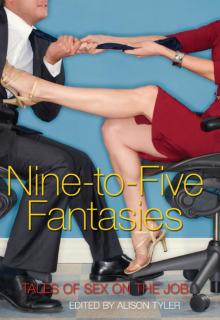 Nine-to-Five Fantasies: Tales of Sex on the Job
Nine-to-Five Fantasies: Tales of Sex on the Job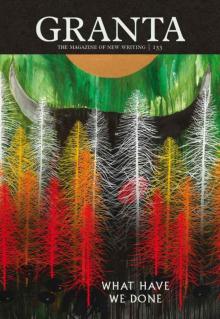 Granta 133
Granta 133 Dream Quest
Dream Quest The Warlock in Spite of Himself wisoh-2
The Warlock in Spite of Himself wisoh-2 Glenn, Stormy - Mating Heat (Siren Publishing Ménage Amour)
Glenn, Stormy - Mating Heat (Siren Publishing Ménage Amour) Davis, Lexie - Toys from Santa (Siren Publishing Classic)
Davis, Lexie - Toys from Santa (Siren Publishing Classic) Once Dead, Twice Shy
Once Dead, Twice Shy McSweeney's Enchanted Chamber of Astonishing Stories
McSweeney's Enchanted Chamber of Astonishing Stories Zombies: Shambling Through the Ages
Zombies: Shambling Through the Ages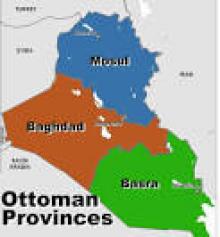 Baghdad Without a Map
Baghdad Without a Map Banshee Cries (the walker papers)
Banshee Cries (the walker papers) Fire and Fog cr-5
Fire and Fog cr-5 The Twelve Hot Days of Christmas
The Twelve Hot Days of Christmas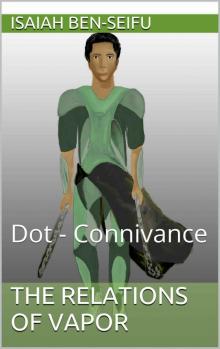 The Relations of Vapor: Dot - Connivance
The Relations of Vapor: Dot - Connivance![Harris, Daisy - Mere Temptation [Ocean Shifters 1] (Siren Publishing Classic) Read online](http://i1.bookreadfree.com/i2/04/11/harris_daisy_-_mere_temptation_ocean_shifters_1_siren_publishing_classic_preview.jpg) Harris, Daisy - Mere Temptation [Ocean Shifters 1] (Siren Publishing Classic)
Harris, Daisy - Mere Temptation [Ocean Shifters 1] (Siren Publishing Classic) World of Mazes cr-3
World of Mazes cr-3 Mistaken Identity (A Jules Poiret Mystery Book 26)
Mistaken Identity (A Jules Poiret Mystery Book 26) Star Trek - DS9 - Fall of Terok Nor
Star Trek - DS9 - Fall of Terok Nor Not Like I'm Jealous or Anything: The Jealousy Book (Ruby Oliver)
Not Like I'm Jealous or Anything: The Jealousy Book (Ruby Oliver) Skaterboy by J. M. Snyder
Skaterboy by J. M. Snyder The Sorcerer_s Skull cr-2
The Sorcerer_s Skull cr-2 The Columbia Anthology of Modern Japanese Literature (Modern Asian Literature Series)
The Columbia Anthology of Modern Japanese Literature (Modern Asian Literature Series) New Erotica 5
New Erotica 5 Catherine Coulter - FBI 3 The Target
Catherine Coulter - FBI 3 The Target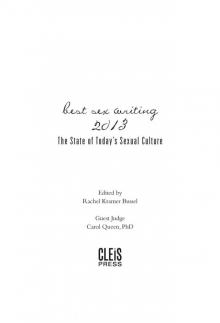 Best Sex Writing 2013: The State of Today's Sexual Culture
Best Sex Writing 2013: The State of Today's Sexual Culture Factoring Humanity
Factoring Humanity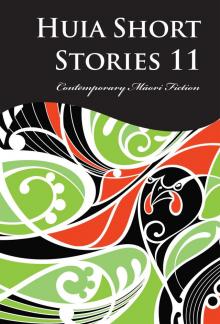 Huia Short Stories 11
Huia Short Stories 11 Call of the Wilds
Call of the Wilds Great English Short Stories (Dover Thrift Editions)
Great English Short Stories (Dover Thrift Editions)![Ramagos, Tonya - Logan's Lessons [Sunset Cowboys 2] (Siren Publishing Classic) Read online](http://i1.bookreadfree.com/i2/04/10/ramagos_tonya_-_logans_lessons_sunset_cowboys_2_siren_publishing_classic_preview.jpg) Ramagos, Tonya - Logan's Lessons [Sunset Cowboys 2] (Siren Publishing Classic)
Ramagos, Tonya - Logan's Lessons [Sunset Cowboys 2] (Siren Publishing Classic)![Morgan, Nicole - Sweet Redemption [Sweet Awakenings 1] (Siren Publishing Allure) Read online](http://i1.bookreadfree.com/i2/04/10/morgan_nicole_-_sweet_redemption_sweet_awakenings_1_siren_publishing_allure_preview.jpg) Morgan, Nicole - Sweet Redemption [Sweet Awakenings 1] (Siren Publishing Allure)
Morgan, Nicole - Sweet Redemption [Sweet Awakenings 1] (Siren Publishing Allure) Warbirds of Mars: Stories of the Fight!
Warbirds of Mars: Stories of the Fight! Original Version of Edited Godwin Stories(lit)
Original Version of Edited Godwin Stories(lit) Where The Hell is Boulevard?
Where The Hell is Boulevard?![Chemical [se]X Read online](http://i1.bookreadfree.com/i2/04/13/chemical_sex_preview.jpg) Chemical [se]X
Chemical [se]X Allison Brennan - See No Evil
Allison Brennan - See No Evil Sherlock Holmes Mystery Magazine #1
Sherlock Holmes Mystery Magazine #1